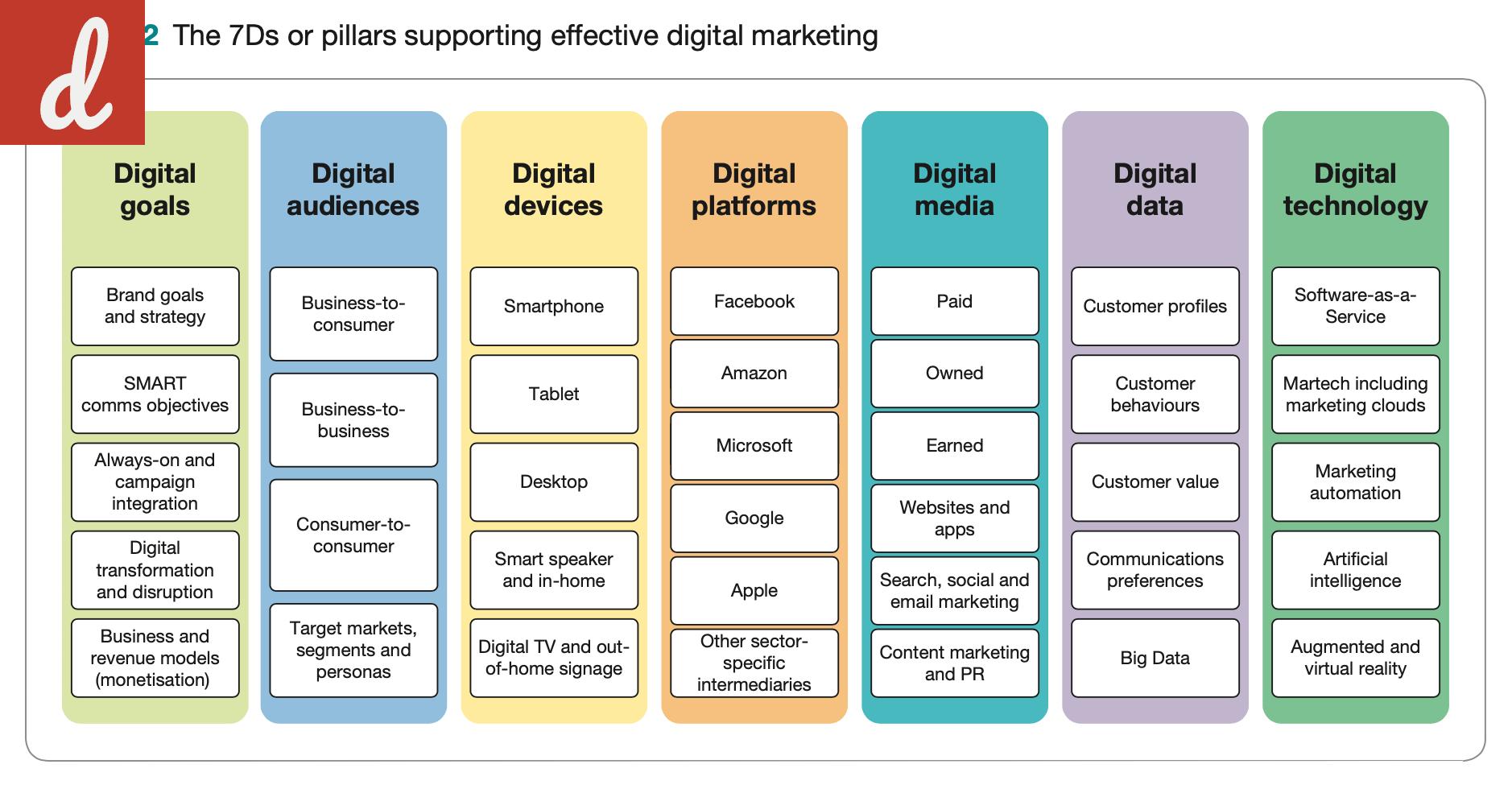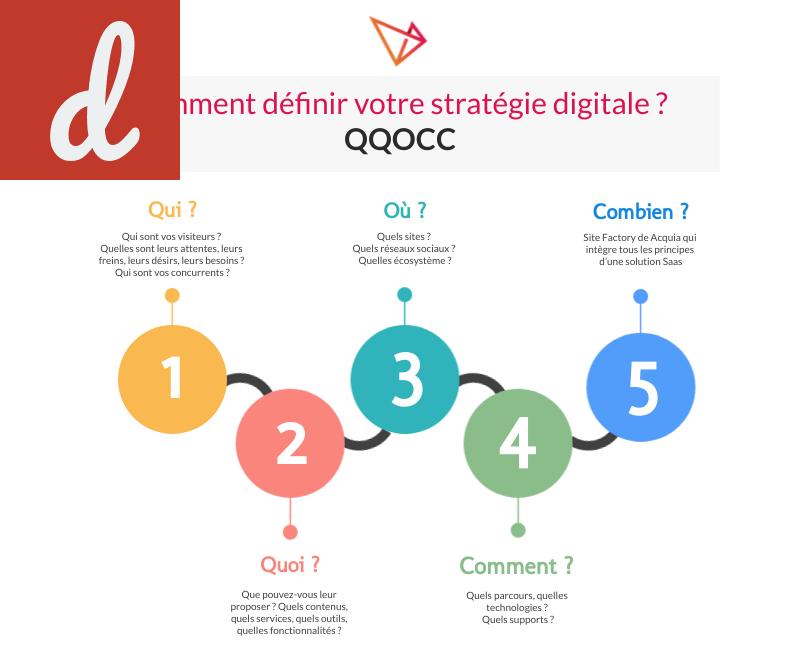Main Title: Unleashing the Potential: Exploring Digital Marketing Platforms
With the rapid advancements in technology, the world of marketing has witnessed a substantial shift towards digital platforms. In today's digital age, businesses are leveraging various online channels to promote their products and services. This article delves into the potential of digital marketing platforms and why they have become a key component of successful marketing strategies.
Digital marketing platforms offer an array of benefits for businesses seeking to expand their reach and connect with their target audience. These platforms provide a cost-effective way to reach a wider audience compared to traditional marketing methods. Moreover, digital marketing allows for better targeting and personalization, thus increasing the chances of engaging potential customers.
- List item 1: Increased brand visibility: Digital marketing platforms enable businesses to increase their online presence and visibility. By utilizing tools such as search engine optimization (SEO) and social media marketing, companies can enhance their visibility in search engine result pages and reach a wider audience.
- List item 2: Enhanced customer engagement: With digital marketing platforms, businesses can interact directly with their customers, fostering stronger relationships. Through social media, companies can engage in conversations, respond to customer queries, and address concerns promptly. This helps in building trust and loyalty among customers.
Furthermore, digital marketing platforms provide valuable data and insights that can be used to refine marketing strategies. The analysis of website traffic, social media engagement, and conversion rates provides valuable information about customer behavior and preferences. Businesses can use this data to tailor their marketing efforts and optimize their campaigns for better results.
It is essential for businesses to adapt to the changing times and embrace digital marketing platforms to stay competitive in today's market. Traditional marketing strategies alone are no longer sufficient to reach potential customers in this interconnected digital era.
Businesses can take advantage of various digital marketing platforms such as search engines, social media platforms, mobile apps, email marketing, and content marketing. Each platform offers unique opportunities for businesses to connect with their target audience and increase brand awareness.
However, it is crucial for businesses to develop a comprehensive digital marketing strategy to make the most of these platforms. This strategy should include clear goals, target audience analysis, content creation plans, and a consistent brand message. Consistency and relevancy are key to success in digital marketing.
In conclusion, digital marketing platforms have the potential to revolutionize how businesses reach and engage with their target audience. By leveraging the power of digital marketing, businesses can enhance their brand visibility, engage with customers, and gain valuable insights for strategic decision-making. Embracing digital marketing platforms is no longer an option but a necessity for businesses looking to thrive in today's digital age.
Stay Ahead of the Game: Mastering Digital Marketing Platforms
Digital marketing has become an essential part of every successful business strategy. With the ever-increasing number of people going online, it has become crucial for businesses to establish a strong presence on digital marketing platforms.
Mastering digital marketing platforms is not an easy task. It requires continuous learning and adaptation to stay relevant in the rapidly changing digital landscape. Here are some tips to help you stay ahead of the game:
- Understand your target audience: Before you start any digital marketing campaign, it is important to have a clear understanding of your target audience. Research their demographics, interests, and online behavior. This information will help you tailor your marketing efforts to reach the right audience.
- Create compelling content: Content is the heart and soul of digital marketing. It is what attracts and engages your audience. Create informative and valuable content that solves your audience's problems or fulfills their needs. Use a mix of formats like blog posts, videos, infographics, and social media posts to keep your audience engaged.
The digital marketing landscape is constantly evolving, and staying updated with the latest trends and strategies is vital. Join industry forums, attend webinars, and read authoritative blogs to keep yourself informed about the latest digital marketing techniques.
Optimize your website for search engines: Search engine optimization (SEO) is crucial for driving organic traffic to your website. Conduct keyword research to find the right keywords for your business and optimize your website accordingly. This includes optimizing your meta tags, headers, and content with relevant keywords.
Utilize social media: Social media platforms are not just for sharing vacation photos and connecting with friends. They have become powerful marketing tools. Create a strong presence on social media platforms like Facebook, Instagram, Twitter, and LinkedIn. Engage with your audience, share valuable content, and run targeted ads to reach a wider audience.
Monitor and analyze your results: Digital marketing provides a wealth of data that can help you measure the performance of your campaigns. Use tools like Google Analytics to track website traffic, engagement, and conversion rates. Analyze the data to gain insights into what's working and what's not, and make necessary adjustments to optimize your campaigns.
In conclusion, mastering digital marketing platforms is essential for staying relevant and competitive in today's digital world. By understanding your target audience, creating compelling content, optimizing your website for search engines, utilizing social media, and monitoring your results, you can stay ahead of the game and achieve success in your digital marketing efforts.
Driving Success: Maximizing Digital Marketing Platform Strategies
In today's fast-paced digital landscape, it is crucial for businesses to have a strong online presence. This is where digital marketing platforms come into play. They offer businesses a comprehensive suite of tools and strategies to effectively reach and engage their target audience. However, not all businesses are maximizing the full potential of these platforms. In this article, we will explore how businesses can drive success by implementing effective strategies on digital marketing platforms.
First and foremost, it is essential for businesses to define their goals and objectives. This will help shape their digital marketing strategy and guide their decision-making process. Whether it is to increase brand awareness, generate leads, or drive sales, clear goals will ensure that businesses stay focused and measure their success accurately.
- List item 1: Businesses should begin by understanding their target audience. By conducting market research and analyzing customer data, they can gain insights into their audience's demographics, interests, and online behavior. This information is crucial for developing tailored marketing campaigns that resonate with the target audience.
- List item 2: Another important aspect of maximizing digital marketing platform strategies is content creation. Engaging and high-quality content is the foundation of any successful marketing campaign. By producing relevant and valuable content, businesses can attract and retain their audience's attention, establish thought leadership, and build brand credibility.
Once businesses have defined their goals and created compelling content, it is time to leverage the various features and tools offered by digital marketing platforms. This includes search engine optimization (SEO), social media marketing, email marketing, and paid advertising. Businesses should actively monitor and optimize their campaigns using data-driven insights to ensure maximum visibility and engagement.
Additionally, businesses should embrace emerging trends and technologies in the digital marketing space. For example, video marketing has become increasingly popular and effective in capturing audience attention. By incorporating videos into their marketing strategy, businesses can convey their message more effectively and stand out from the competition.
Lastly, businesses must continuously analyze and measure their digital marketing efforts. This involves tracking key performance indicators (KPIs) and metrics such as website traffic, click-through rates, conversion rates, and return on investment (ROI). By regularly assessing their performance, businesses can identify areas of improvement and refine their strategies for better results.
In conclusion, digital marketing platforms offer businesses a wide range of opportunities to connect with their target audience and drive success. By defining clear goals, creating engaging content, leveraging platform features, embracing emerging trends, and analyzing performance, businesses can maximize their strategies and achieve tangible results.

The Power of Choice: A Comprehensive Guide to Digital Marketing Platforms
With the rapid growth of technology and the internet, digital marketing has become an essential component of any successful business strategy. In today's digitally-driven world, businesses need to reach and engage their target audience online to stay competitive.
When it comes to digital marketing, there is a plethora of platforms and tools available to help businesses promote their products or services. However, with so many options to choose from, it can be overwhelming for business owners to determine which platform is the right fit for their marketing needs.
That's where this comprehensive guide comes in. We'll walk you through some of the top digital marketing platforms and help you understand their functionalities and benefits.
- Search Engine Optimization (SEO): SEO is the process of optimizing your website to increase its visibility on search engine results pages. It involves various strategies like keyword targeting, link building, and website optimization to improve your organic search rankings. By ranking higher on search engines, you can drive more targeted traffic to your website and generate leads.
- Social Media Marketing: Social media platforms like Facebook, Instagram, Twitter, and LinkedIn offer powerful tools for promoting your business. These platforms allow you to create and share engaging content, connect with your target audience, and drive traffic to your website. Social media marketing also provides valuable opportunities for building brand awareness, increasing customer engagement, and driving conversions.
In addition to SEO and social media marketing, other popular digital marketing platforms include:
- Pay-Per-Click Advertising (PPC): PPC advertising allows businesses to display ads on search engine results pages and websites, and pay only when someone clicks on their ads. Platforms like Google Ads and Microsoft Advertising offer robust PPC advertising solutions, allowing businesses to target their audience based on keywords, demographics, and interests.
- Email Marketing: Email marketing is a powerful platform for nurturing leads, building customer relationships, and driving sales. With email marketing tools like Mailchimp and Constant Contact, businesses can send personalized and targeted email campaigns, promote their products or services, and keep their audience informed about updates and promotions.
- Content Marketing: Content marketing involves creating and sharing valuable content to attract and retain a clearly defined audience. Blog posts, videos, infographics, and eBooks are all examples of content marketing. Platforms like WordPress, Medium, and YouTube offer excellent tools for publishing and distributing your content to reach a wider audience.
The key to successful digital marketing is choosing the right platforms that align with your business goals and target audience. It's important to consider factors like your marketing budget, target demographics, and the nature of your products or services.
Remember, digital marketing is not a one-size-fits-all approach. Every business is unique, and what works for one may not work for another. Experiment with different platforms, monitor your results, and make data-driven decisions to optimize your marketing efforts.
In conclusion, digital marketing platforms offer immense opportunities for businesses to reach and engage their target audience online. Whether it's SEO, social media marketing, PPC advertising, email marketing, or content marketing, each platform has its own strengths and benefits. Determine your marketing objectives, research the available platforms, and choose the ones that best fit your business needs. With the power of choice, you can leverage the right digital marketing platforms to propel your business to new heights.
Navigating the Digital Landscape: Tips for Choosing the Right Marketing Platform
The digital landscape has revolutionized the way businesses promote their products and services. With numerous marketing platforms available, it can be overwhelming to choose the right one for your business. However, by considering a few key factors, you can make an informed decision that aligns with your goals and maximizes your marketing efforts.
First and foremost, understand your target audience. Identifying your target market is crucial, as it influences the platforms they prefer and the type of content that resonates with them. For instance, if your target audience is predominantly young professionals, platforms like Instagram and LinkedIn might be more effective. On the other hand, if your target audience consists of older individuals, platforms like Facebook and Twitter might be more suitable.
Next, determine your marketing goals. Are you looking to drive traffic to your website, increase brand awareness, generate leads, or boost sales? Different platforms excel in different areas, so aligning your goals with the platform's strengths can yield better results. For example, if your goal is to enhance brand visibility, social media platforms like Instagram and Facebook can help you reach a wide audience and engage with them through compelling visuals and content.
- Consider your budget. Marketing platforms often have different pricing structures, and it's important to assess whether they fit within your budget. Some platforms charge per click (PPC), while others charge per impression or offer monthly subscriptions. Set a realistic budget and explore platforms that align with it.
- Research platform features and analytics. Each marketing platform offers unique features and analytics to help you track and measure your campaign performance. These insights are invaluable in optimizing your strategy and improving your return on investment (ROI). Look for platforms that provide comprehensive analytics and reporting capabilities, allowing you to make data-driven decisions.
Furthermore, it's essential to consider scalability and flexibility. As your business grows, you may need to expand your marketing efforts. Choose a platform that can accommodate your evolving needs and offers scalability for future campaigns. Flexibility is also crucial, as it allows you to experiment with different strategies and adapt to changing market trends.
User-friendly interface is another important factor to consider. Choose a platform that is intuitive and easy to navigate, as it will save you time and effort in managing your marketing campaigns. A user-friendly interface ensures a smoother experience, enabling you to focus on creating compelling content and engaging with your audience.
Last but not least, customer support and resources should not be overlooked. Look for marketing platforms that offer responsive customer support and valuable resources such as tutorials, webinars, and guides. These resources can help you navigate the platform effectively, troubleshoot issues, and optimize your marketing strategy.
By considering the factors mentioned above, you can confidently choose the right marketing platform that aligns with your goals, target audience, and budget. Remember, effective marketing is about finding the right platform to connect with your audience and deliver your message in a compelling and engaging way.



Dec 18, 2023 says :
Conviértete En Un Experto En Marketing Digital Con La Plataforma Adecuada